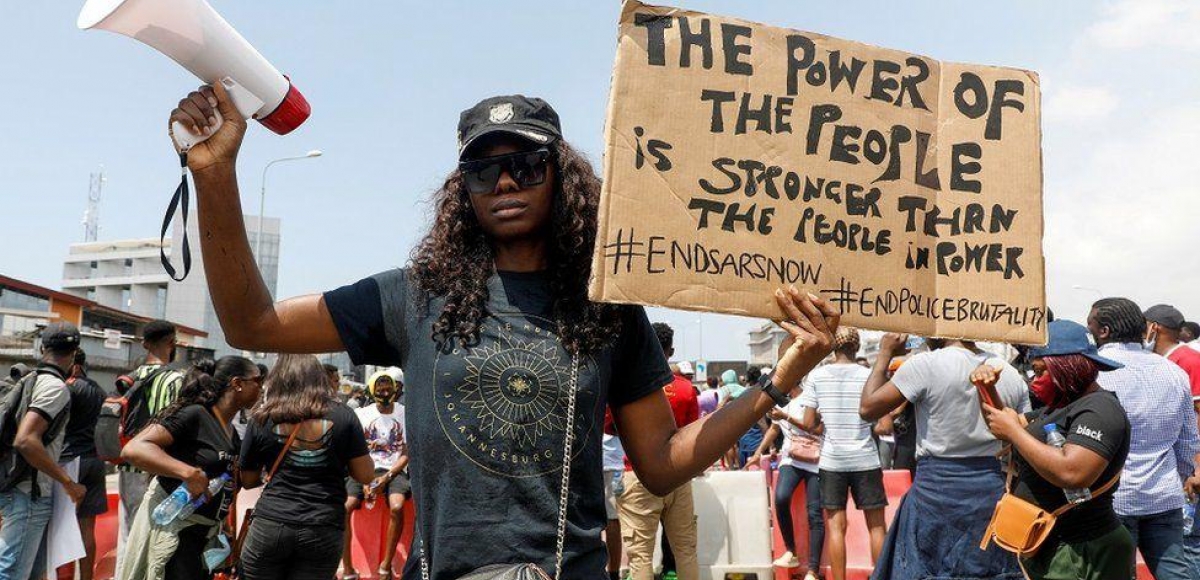Arrangementet vil foregå på engelsk. Zoom-lenke: https://zoom.us/j/96969373711
In October last year the world witnessed widespread protests over Nigeria's hated Special Anti-Robbery Squad (SARS) in demonstrations named #EndSARS. The police in the country in general have a bad reputation for corruption, brutality and disrespect for human rights, but especially SARS officers have developed a notoriety for profiling young people. In fact, a report from Amnesty stated it documented at least 82 cases of torture, ill-treatment and extra-judicial execution by SARS between Jan. 2017 - May 2020.
The #EndSARS protests have become a symbol for broader resentment and opened the path for marginalized Nigerian youths to get an outlet for bottled-up grievances against the government. Having been called "lazy" by President Buharu, Nigerian youth have shown the world they have a voice to be reckoned with. But what does Nigerian youth want? Do they unite over a common cause? And will they be able to effectively organize and change the current political establishments in the country in the 2023 elections?
In the panel:
- Sa'eed Husaini, post-doctoral research fellow on the project on Migration, Urbanisation, and Conflict based at the University of Lagos. His work examines the development of ideology, party organization, and political mobilization in contemporary Nigerian politics.
- Oluwaseun Ayodeji Osowobi, a multi-award winning global gender equality advocate with experience in deploying solutions to challenge social barriers that promote violence against women and girls.
- Dr. Uche Igwe, political economy analyst and visiting fellow at the Firoz Lalji Centre for Africa at the London School of Economics.
- Tolu Shokunbi, representative of the Union of Nigerian Nationals Norway.
Moderator will be Camilla Houeland, Postdoctoral Fellow at the University of Oslo. Houeland has done extensive research on oil and trade unions in Nigeria.

